Amanda McBrien
This user hasn't shared any biographical information
Posts by Amanda McBrien
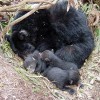
Hibernation – Why Not Me?
Feb 16th
It’s the season of hibernation, something I’ve always wished I could do. Oh, to wrap up in a ball, sleep away the winter, and wake to a beautiful spring day – like Bambi! Although the thought has always intrigued me, it never really occurred to me what a feat hibernation actually is. It turns out that all of the bears, squirrels, rabbits etc…. that I thought were just sleeping, are breaking biological laws!! If I was to stay dormant for 5 months, without food or drink and little to no movement in freezing temperatures I would die, so no hibernating More >
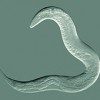
Aging Eggs
Dec 20th
C. elegans Roundworm
The aging process is, and always will be fascinating to us. It’s role in an organism’s ability to reproduce is currently being studied in worms at Princeton University. The microscopic roundworm C. elegans lives for about 21 days. For the first nine of these days, hundreds of eggs are fertilized producing an abundance of offspring! After day nine, the many remaining eggs won’t be used, as their quality is poor and they cannot produce viable embryos. A process similar to this takes place in humans. Women experience a sharp decline in fertility in their late 30’s. In worms and in humans More >
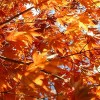
Autumn Leaves
Oct 28th
Autumn is my favorite season. I enjoy the cool weather, unpacking my sweaters from the attic and sleeping under my cozy comforter. But better than all of the above are the fantastic red, yellow and orange leaves that adorn the deciduous trees here in New York. Before I worked at the DNA Learning Center, this process was simply a beautiful rite of fall. Now, I see the whole process in a different light. It’s an elegant series of genetic steps that evolved millions of years ago, for a reason much bigger than beauty!
For most of the year, deciduous trees are More >

Can I Teach That?
Sep 21st
Recently I worked with a group of graduate students who volunteered to be science mentors for students in New York City. They were being trained in a small set of hands-on labs designed to introduce genetics in an engaging, informal environment. At some point during the training, we touched upon genetic mutations and variation. I mentioned that it was a perfect segway into discussion of natural selection and evolution. One participant raised her hand and asked, “Are we allowed to teach that?” My initial response was surprise. I said, “Of course!” It is unfortunate though, that as science educators we should even More >
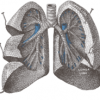
Taste Receptors in Lungs
Nov 11th
There are bitter taste receptors lining the smooth muscle that surrounds airway passages that lead to the lungs. These are the same receptors found on the tongue. It is well known that the ability to taste bitter has evolutionary benefits. For example, bitter tasting toxins can be detected in foods, and thereby avoided or at least regulated; meaning you won’t eat too much of something that tastes really bad!
Interestingly enough, inhalable toxins can be detected in airways, just like they would be on the tongue. The airway response to detection is what’s most interesting. One school of thought is that More >

HIV Vaccine?
Jul 14th
We are in the midst of a media explosion surrounding the possibility of a vaccine for HIV. For years this has seemed a hopeless situation, so a great deal of effort and money has been spent on the campaign to educate people about transmission and prevent infection. Unfortunately, according to recent reports (http://www.mg.co.za/article/2010-07-12-hiv-vaccine-the-only-real-answer), the number of new infections is still an alarming 7400 per day! In addition, less than half of the 9.5 million people in low-middle income households infected with HIV have access to anti viral treatments.
These staggering statistics demonstrate very clearly that efforts to help infected individuals are available More >
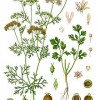
Cilantrophobia
Apr 14th
Growing up I was a very picky eater. When I didn’t like what my mother had prepared for dinner, I would usually just say, “I’m not hungry” and make myself a peanut butter sandwich. As a grown up, my food choices have changed a great deal, in fact, I enjoy trying new things and watching to Food Network for good ideas.
One of the cooking tips that I have picked up from all of the foodie shows I watch is to use fresh herbs, whenever possible. Believe it or not, that green spring of parsley on my plate at restaurants that More >
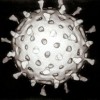
Viral Influence
Mar 17th
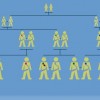
Genes Don’t Exist to Cause Disease
Feb 17th
It is not uncommon during labs on mutations, to discuss that mutations can cause genetic disease. Students will use the phrase “the gene for breast cancer” or “the gene for hemophilia” when these discussions take place. What many think, is that individuals with breast cancer or other genetic diseases have a gene that others do not. In reality, they have a gene that everyone has, but the gene has a mutation that affects its function. Genes don’t exist to cause disease. This is a recurrent theme for me!
For example, when someone has hemophilia (a blood clotting disorder), there is a More >
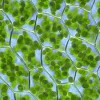
Gene Theft and Green People?
Jan 21st
I have been asked several times by middle school students if it would be possible to give humans the genes to carry out photosynthesis. It’s been theorized by a few of these students that this would solve some major nutrition problems in places currently plagued with drought. I always smile and agree that is sounds like a great idea, but probably not possible. Now, there is actually some evidence to the contrary.
A sea slug species, Elysia chlorotica, found in the marshes of New England and Canada has a unique trait. It produces chlorophyll and can use photosynthesis to make it’s own food – just like a More >
